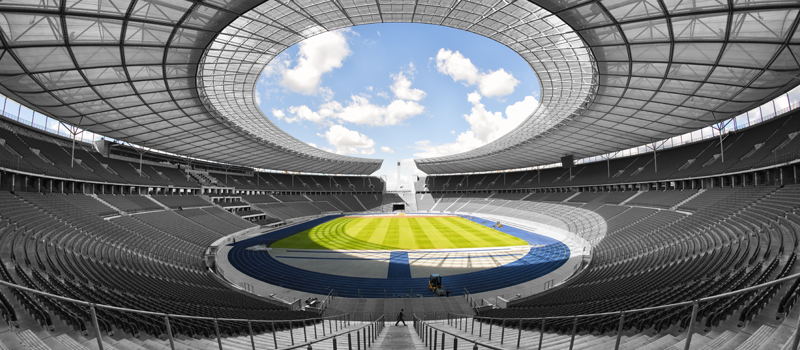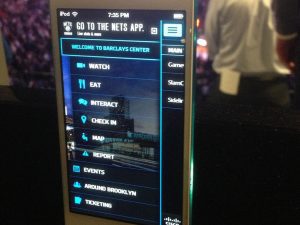 The business of sports continues to evolve in many ways including fan expectations, venue operations, player insights and analytics. Instant access to all relevant information is paramount to winning. The Internet of Things (IoT) is helping create a competitive advantage for owners, leagues and teams. Here are four ways that IoT is transforming sports via smart venue technology.
The business of sports continues to evolve in many ways including fan expectations, venue operations, player insights and analytics. Instant access to all relevant information is paramount to winning. The Internet of Things (IoT) is helping create a competitive advantage for owners, leagues and teams. Here are four ways that IoT is transforming sports via smart venue technology.

Attribution: techrepublic.com
Fan Engagement
Fans are demanding more data and technology is delivering – enhancing the fan experience through more and more personalization opportunities. From seat upgrades, concession line updates, and interactive touch-screen information kiosks, smart venues help fans connect to the game they love in exciting ways.
Imagine, as you approach the stadium, you are sent a map of the venue that shows the fastest route to your seat. When you want something to eat, you can get near real-time information on the nearest concession stand location with the shortest line. Perhaps you want to pick up some merchandise from the team store – you can now check out and pay without waiting in any long lines. This is smart venue technology in action.

Attribution: geekwire.com
Transportation
As sporting events and entertainment draw more fans, smart venue technology can address traffic congestion and parking issues that are pain points for many attendees.
Parking management systems can help control access across multiple parking facilities, including pre-booked parking, vehicle routing, digital payment options and more. This can streamline the overall process – improving the front-end fan experience and the back-end operations and efficiencies.
For public transportation commuters, digital signage informs when the next bus or train will arrive in near real time. And electric bikes can be rented with the tap of a smartphone at stations across the city. For ridesharing commuters, stadiums are establishing dedicated drop-off and pick-up locations to improve ease and access for fans. And near real-time traffic mapping can help find the optimal route home.
Infrastructure
With intelligent infrastructure, smart sensors and cameras enable remote monitoring of the venue’s conditions. All this can be done through applications that are as easy to use as the smartphone we’re accustomed to. This way, necessary repairs can be addressed proactively instead of reactively.
Intelligent infrastructure is also helping venues to become more energy efficient. With smart lighting solutions, as just one example, we can retrofit existing venue lighting and use IoT solutions to help optimize the use of energy for these activities. And video cameras can provide meaningful insights into traffic patterns inside the stadium to ensure stadiums can match demand in near real time.
Public Safety
Last but certainly not least, public safety stands to benefit in big ways as venues become more tech-driven. Drones, for example, could show paramedics what’s happening at an in-stadium accident before they arrive. The potential to deploy a connected drone and collect information from the scene of an emergency could help EMS personnel make key decisions and jumpstart their response.
There is new IoT technology coming online every month to improve how we watch a sporting event as well. Looking at basketball, there are new sensors that show the audience how hard the basketball player is slamming the ball through the hoop that don’t cost more than $10 to build! The same technology can replace a radar gun within baseball by clocking the speed of the pitcher’s throw. This improved customer experience based on IOT is the answer that sports organizations are looking for to enhance their customer’s experience and increase fan longevity.







